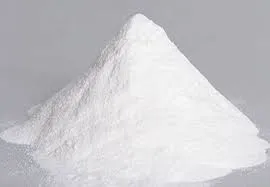
Nov . 24, 2024 11:47 Back to list
hpmc viscosity
The Role of HPMC Viscosity in Pharmaceutical Formulations
Hydroxypropyl methylcellulose (HPMC) is a critical excipient widely utilized in the pharmaceutical industry. Its unique properties, especially viscosity, play a significant role in the formulation of various dosage forms such as tablets, suspensions, and gels. Viscosity, a measure of a fluid's resistance to flow, has profound implications on the stability, release characteristics, and overall effectiveness of pharmaceutical products.
The Role of HPMC Viscosity in Pharmaceutical Formulations
One of the critical applications of HPMC is in the development of controlled-release formulations. The viscosity of HPMC affects the diffusion rate of the drug from the matrix. Higher viscosity grades can slow down the release rate of the drug, which is essential for sustaining therapeutic effects over extended periods. This property is particularly beneficial in improving patient adherence, as it reduces the frequency of dosing and helps maintain steady plasma drug levels.
hpmc viscosity

In the context of tablet formulations, the viscosity of HPMC also influences the granulation process. By controlling the viscosity during wet granulation, formulators can achieve optimal granule size and porosity, which are crucial for ensuring uniform drug distribution and consistent disintegration properties. Tablets formulated with HPMC can exhibit favorable mechanical strength, making them less prone to breakage during manufacturing and handling.
Moreover, HPMC's viscosity characteristics contribute to the stability of suspensions. An ideal viscosity ensures that the active ingredients remain uniformly dispersed, preventing sedimentation and ensuring consistent dosing. When formulating eye drops or other topical preparations, the viscosity of HPMC can enhance the product's retention time on the mucosal surface, thereby improving its therapeutic efficacy.
It is also important to acknowledge that the viscosity of HPMC can be affected by factors such as pH and ionic strength, which should be carefully considered during formulation development. Adjusting these variables may help optimize the viscosity for specific applications, ensuring that the final product meets desired performance criteria.
In summary, the viscosity of HPMC is a pivotal factor in pharmaceutical formulations, influencing drug release, stability, and patient compliance. Its versatility allows for tailored approaches in various applications, making HPMC an invaluable excipient in the quest to develop effective and reliable pharmaceutical products. As research advances, understanding and manipulating HPMC viscosity will continue to enhance formulation technologies and therapeutic outcomes.
-
Versatile Hpmc Uses in Different Industries
NewsJun.19,2025
-
Redispersible Powder's Role in Enhancing Durability of Construction Products
NewsJun.19,2025
-
Hydroxyethyl Cellulose Applications Driving Green Industrial Processes
NewsJun.19,2025
-
Exploring Different Redispersible Polymer Powder
NewsJun.19,2025
-
Choosing the Right Mortar Bonding Agent
NewsJun.19,2025
-
Applications and Significance of China Hpmc in Modern Industries
NewsJun.19,2025







